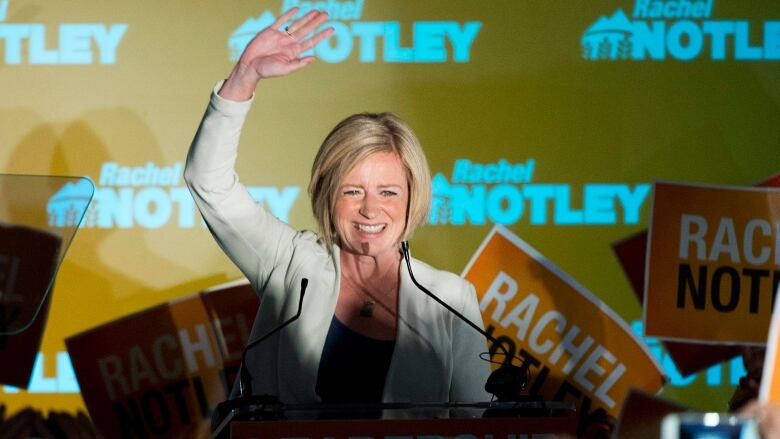Alberta's New Government: Is this just the beginning?
They wanted a new way of doing business in the province

For many people, including me, Alberta's new NDP government is a huge surprise.
After more than fourdecades of Conservative rule, the people have finally decided that they need a change.
Perhaps the election results are not entirely surprising, given the general lack of confidence in the lastthree leaders, none of whom has lasted very long in the premiership.
On the other hand, maybe the fall ofoil has prompted Albertans to see the results of short-sighted policies and what could be described aswishful thinking on the part of the province's leaders.
One of the problems that analysts have already noted is that Alberta has concentrated its efforts almostexclusively on developing and promoting a single source of revenue: Oil.
Rather than looking for otherindustries and activities to supplement oil revenues, the financial experts and politicians in Alberta havestaked everything on a resource that they ultimately could not control.
A second problem is that successive premiers over the past decades have managed oil wealthpoorly,collectingminimal royalties from oil companies instead of making the best possible deal fortheir own citizens and then saving the money for the future, as countries like Norway have done.
Albertans might blame the last few leaders for the situation, but the problem goes backfurther thanthat.
I lived in Alberta during the time when Ralph Klein was the premier, and although I frequently heardabout what a great leader he was, I wasn't convinced.
He might have had wonderful insights and plans,for all I knew, but what I saw of life in Alberta even then was not always nice.
I knew little about oil revenues, but I saw a province which at that time had the lowest minimum wage inthe country and job prospects that were mediocre, except in the oil industry.
It was a place where peoplewere proud of having no provincial sales tax but where they rarely talked about the fees that they had topay for everything from basic health care premiums to library cards.
For anyone without a steady job with good benefits, life in Alberta could be difficult. Somehow, the vastwealth from oil was collecting at the top and not trickling down to many of the people below.
Still, Alberta had manynice people, friendly and helpful to the newcomer in their midst, even if theywere unable to do much to help with finding good jobs.Perhaps that's why, when the veneer of oilprosperity began to disappear, they realized that they needed to do something to help bring greaterequality to their region.
It's hard to say exactly what caused people to vote the way they did, but the increased voter turnout thisyear, far more than in previous years, has shown that many Albertans wanted change.
They wanted a new way of doing business in the province.
Perhaps the downturn in oil made them wonder if it was really such a good idea to put so much emphasison one natural resource, however lucrative it was, while largely ignoring other potential sources ofincome.
Maybe they were tired of paying extra fees for everything while being told how lucky they wereto live in such a rich province.
It could be that, after years of dutifully voting for the same political party, they woke up and realized thatthey could do something more than settling for the status quo.
Perhaps they saw a future without oil andrealized that they needed to change, or maybe they just wanted to see what a new government could do.
The results of the Alberta election might not be as earth-shattering as they might seem now, but theyshould get other Canadians thinking. Is the current state of life in Canada the best that we can do or isthere something that we can change to make it better for everyone?
Have Canadians, like Albertans with their low minimum wage and vast economic disparities, accepted asocial order that is not only unfair but also unnecessary? Perhaps people have too readily acceptedpoliticians' word that there is little or nothing to be done about unemployment, povertyand a multitudeof other ills in our current economy.
Albertans have decided that they will try to bring a new direction to their province.
If the experimentshows signs of success, who knows what will happen in the rest of the country.
Susan Huebert is a Winnipeg writer and editor.












_(720p).jpg)


 OFFICIAL HD MUSIC VIDEO.jpg)
.jpg)



























































































